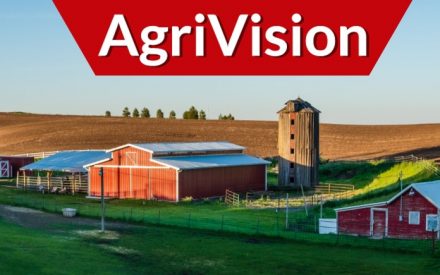View Transcript
Katie Wantoch
This is UW Extension’s Farm Management AgriVision Podcast. I am Katie Wantoch Agriculture agent with the UW-Madison Division of Extension. I’ll be chatting with fellow Extension educators as we answer questions from farmers and share our knowledge and expertise on how you can improve your farm management skills. Today I’m joined by Ben Jenkins, Agriculture extension educator in Green Lake County. Welcome Ben to the podcast.
Ben Jenkins
Hi Katie.
Katie Wantoch
Ben, the question today is from a son, who with his dad farms 800 acres. 600 acres are owned and milk 150 cows in South Central Wisconsin. His uncle sold his cows last year and rented his land to the dad and son. The uncle’s farm is five miles from theirs. In December, he bought 160 acres from his uncle and paid $6,000 an acre. It is good land and that is the only debt he has. Last week his uncle asked if he planned to buy any more land from him. His uncle wants to keep the farm buildings and 160 acres. But he would like to sell another 160 acres to him in a couple of years. He told his uncle he would have to think about it. His dad is 66 and plans to retire in two years. His son is 16 and is graduating from high school next year. His son plans to go to short course and start farming with him when his dad retires. He will be 45 then. In the past 25 years, he and his wife have paid his dad for the cows, machinery and the land on their farm. His original plan was to sell the cows in seven years and finish paying off the mortgage on the land he bought from his uncle with the sale of the cows and heifers. His son wants to farm with him, but he doesn’t want to milk cows. Ben, do you think this farm should buy more land in two years?
Ben Jenkins
Katie, this is always a tough one to answer. Usually it comes down to is farmland a good investment? We generally accept that a large part of farming is managing debt. So I would really want to know whether or not these acres will pay for themselves, or if the acres that are owned will be expected to pick up the tab and if so by how much. So basically is picking up these acres for this price is going to create a drag on that business or that bottom line. So the first question that needs to be answered is how profitable is the operation currently?
Katie Wantoch
Right, that’s a great point, Ben. You know, looking at the historical analysis of the farm, looking at the ratios, there’s a farm financial scorecard that this farmer can look at how his ratios compare or benchmarks to other operations and just see, is this going to be profitable for his operation, like you said. And if not, what are some alternatives?
Ben Jenkins
Correct, you know, and when we look at profitability, it’s really not the size of the operation, that’s going to determine the profitability. In some cases, we can actually hurt our profitability of our current operation by taking on too much debt all of a sudden.
Katie Wantoch
Right. You know, debt is borrowed capital, and your cash flow can be impacted when purchases are made. And so you need to look at, you know, kind of budgeting out what how this cash flow will be impacted, you know, you’re going to take money away from a different part of your operation to finance and how is that going to impact other pieces of your enterprise?
Ben Jenkins
Exactly. So the first thing that I’m going to look at subjectively here in this particular operation is the fact that they’re farming in South Central Wisconsin, which kind of puts them in a location that didn’t really see a weakening of farmland prices through the last recession, even though the corn was $3. And you know, everything else was kind of struggling. This area of the state really didn’t see that drop off. And really, it was due to the fact that it was experiencing the rest of that area that wasn’t farming was still experiencing steady economic growth since 2009. Land prices were influenced by that steady development. And a lot of that land was being taken out of Ag that basically, because of its proximity to say Madison and the Wisconsin Dells and other smaller metropolitan areas that we can consider, say, like Portage and that kind of stuff in there, too. That’s pretty much ensure that the land prices in that area stay stable or even slightly increase. So if I were in his shoes, I would see if the uncle would be willing to work out a land contract given that he is selling to a family member. So either way, they’re going to have to sit down and come up with a realistic cost of production for this new nondairy enterprise to see if it can fit that purchase that land and that cost of production.
Katie Wantoch
Right. And whether it’s a land contract or some other alternative rent to own, he is working with family, but the uncle is going to need to have some give and take as well. You know, $6,000 an acre is not cheap by any means. And so really looking at budgeting and going back, doing that historical analysis, determining the cost of production on what is his cropping enterprise, what is the dairy enterprise those enterprise budgets to see, so that he can do a pro forma to look at how this is going to look without the dairy enterprise in his operation.
Ben Jenkins
Absolutely. He needs to consider those swings that commodity prices take and though prices are good right now, these prices aren’t guaranteed forever. Commodities, we all know this. We all say that we know this at least I don’t know if we always realize this but commodities always correct. Historically however, in this area of the state, if you’ve bought land for a reasonable price, it’s usually worked out well for the purchaser given that this area of the state has not seen those land values fall off significantly since about the 1980s. So if the land in question has historically yielded enough over the cost of production to afford the purchase, chances are that by the time he retires, he’ll be glad that he bought it. Whether or not the 18-year-old son will be able to take over at that time, given that the area’s record for increasing land values. That’s another question entirely.
Katie Wantoch
Right. And I think for this farmer in particular, you know, he needs to really focus on what he wants to do, what his future is, and taking over from his dad. Not necessarily worrying about his son, but focusing on him and his operation, what him and his wife feel comfortable with. And then seeing in the future, how his son might be incorporated into that.
Ben Jenkins
I completely agree. And in this instance, too, it might actually behoove the 18-year-old son himself to go work out a land contract or rent to own with the uncle, but his dad might actually encourage the son to do that. So the son can actually start farming before mom and dad are ready to sell the rest of the farm to him.
Katie Wantoch
Yeah, and some of these questions are a lot that this farmer wants us to kind of answer for him. But sometimes you only can bite off a little bit and chew on that and not become overwhelmed with some of the decisions. And so like you said some questions are definitely left for another day, focus on what this farmer can control and make decisions on now before going to the next step.
Ben Jenkins
I completely agree.
Katie Wantoch
Well, thanks, Ben. Anything else to add today?
Ben Jenkins
Nothing else at this time.
Katie Wantoch
All right. Well, thanks for joining us, Ben. You have a great day.
Ben Jenkins
You too, Katie.
Katie Wantoch
For more Extension AgriVision podcasts or resources to improve your farm management skills, check out farms.extension.wisc.edu. Thanks for listening.
Related Resources
Information in this article was originally published as part of the Agrivision column in Wisconsin Agriculturist.



 AgriVision Episode 28 - Do we need LLC for ag bagger?
AgriVision Episode 28 - Do we need LLC for ag bagger?